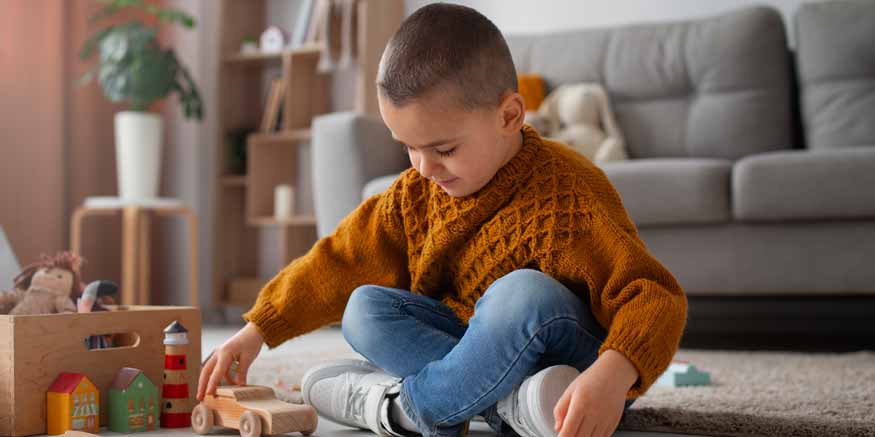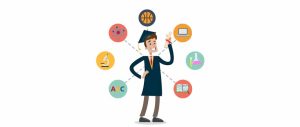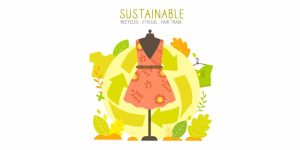Everyday Development Anchors for Growing Toddlers

Every parent asks themself the same question – is my child growing well? Very often, we concern ourselves with the traditional indicators of healthy growth, like whether they are getting the necessary nutrition, or achieving the right height and weight for their age. However, it is important to remember that emotional and cognitive development are also fundamental pillars of early childhood learning. Ensuring that your child has a nurturing environment in which to grow and learn will lead to more well-rounded development in your toddler.
This article explains the importance of early childhood care and development, and explores effective strategies to integrate development anchors into your toddler’s daily life.
Understanding Developmental Anchors
From the time that they are born until the age of five years, children experience rapid growth and development of both – body and mind. As the name suggests, development anchors are consistent and predictable elements in a child’s daily routine that provide them with stability and security.
An excellent example of this is when children have regular meal times, which instils in them the belief and trust that they will not go hungry. Similarly, consistent caregiving practices create a sense of security in young children, which helps them develop healthy emotions over time.
Development anchors help toddlers feel safe and understood, and are vital for their emotional and cognitive growth. When integrated into daily life, they ensure holistic growth, which ultimately leads to healthier, happier children.
Types of Development in Toddlers
The importance of early childhood development cannot be overstated. It is the foundation upon which your child’s health and wellbeing is built. In order to set development anchors in your toddler’s daily life, it is first important to understand the different types of development in children.
- Physical Development in Toddlers involves refining motor skills and physical abilities. Activities like running, climbing, and playing with age-appropriate toys are good development anchors, and can enhance a toddler’s physical development.
- Cognitive Development in Toddlers refers to a child’s ability to think, learn, and solve problems. During their toddler years, children are extremely curious and want to explore their surroundings, which is how cognitive growth takes place. Developmental anchors like storytelling, puzzles, and interactive play can help boost cognitive abilities in children.
- Social-Emotional Development in Toddlers helps them manage emotions, establish relationships, and interact with others. It is the ability to not only understand and communicate their own feelings, but also understand and respond to the feelings of others. Consistent routines, increased social interaction and activities to help children recognise their feelings and emotions are excellent developmental anchors for toddlers.
Practical Strategies for Integrating Developmental Anchors
Let’s explore how you can incorporate development anchors into your Child’s daily life.
- Consistent Routines
- Quality Time and Attention
- Positive Reinforcement
- Encouraging Exploration and Play
- Emotional Support and Empathy
Consistent daily routines help toddlers understand what to expect. This helps reduce anxiety, and gives them a sense of security. Setting a structured environment with regular meal times, nap schedules, outdoor activities and learning space and time will help toddlers get accustomed to following schedules, which will be an integral part of their lives as they grow.
Your undivided attention for set periods of time will not only convey to your child that they are important to you, but also set healthy boundaries, in which they understand the value of the time you have together. Spending time with your child helps strengthen your bond with each other. It allows you to gain a deeper insight into your child’s personality – what they like and dislike, how they perceive the world, where they excel and where they are challenged. Similarly, your child may learn something from observing and spending time with you – perhaps a new word, a cultural tradition or social etiquette. Reading together or playing interactive games are also excellent ways to enhance cognitive and social-emotional development.
A relatively newer concept in early childhood care and development, positive reinforcement works by rewarding good behaviour in your child. When a child does something well and is rewarded for it, they are motivated to do well again, and look for other areas or tasks where they can do well. Your immediate feedback will help toddlers understand what they did well, which helps shape their behaviour patterns, and build good habits.
Providing children with age-appropriate toys, puzzles, and art supplies will stimulate creativity and problem-solving skills. Encouraging your child to play outdoors or engage in physical activity and sensory experiences are very good development anchors. It helps build their social skills and cultivates a propensity to curiosity and learning.
Young children do not understand their emotions and can often get overwhelmed when they experience strong feelings. A very important development anchor to integrate into your toddler’s daily life is emotional wellbeing. Children have to be taught to identify what they are feeling, and also how to deal with, and express the emotions they experience. This requires parents to put in the effort to understand what their child is feeling, and turn these outbursts into learning opportunities.
Early childhood care and development is essential for toddlers. As a parent, you play the most important role in ensuring healthy growth by integrating developmental anchors into daily life. You are your child’s first teacher, so designing their daily routines and taking an active part in them is extremely important.
The task of building a strong foundation for your child’s future can be quite daunting, and having the support you need to see it through is invaluable. At Billabong High International School, we provide a nurturing environment to all our students. Our dedicated educators use evidence-based practices to support your child’s growth and learning. To learn more about our curriculum, contact us today.













